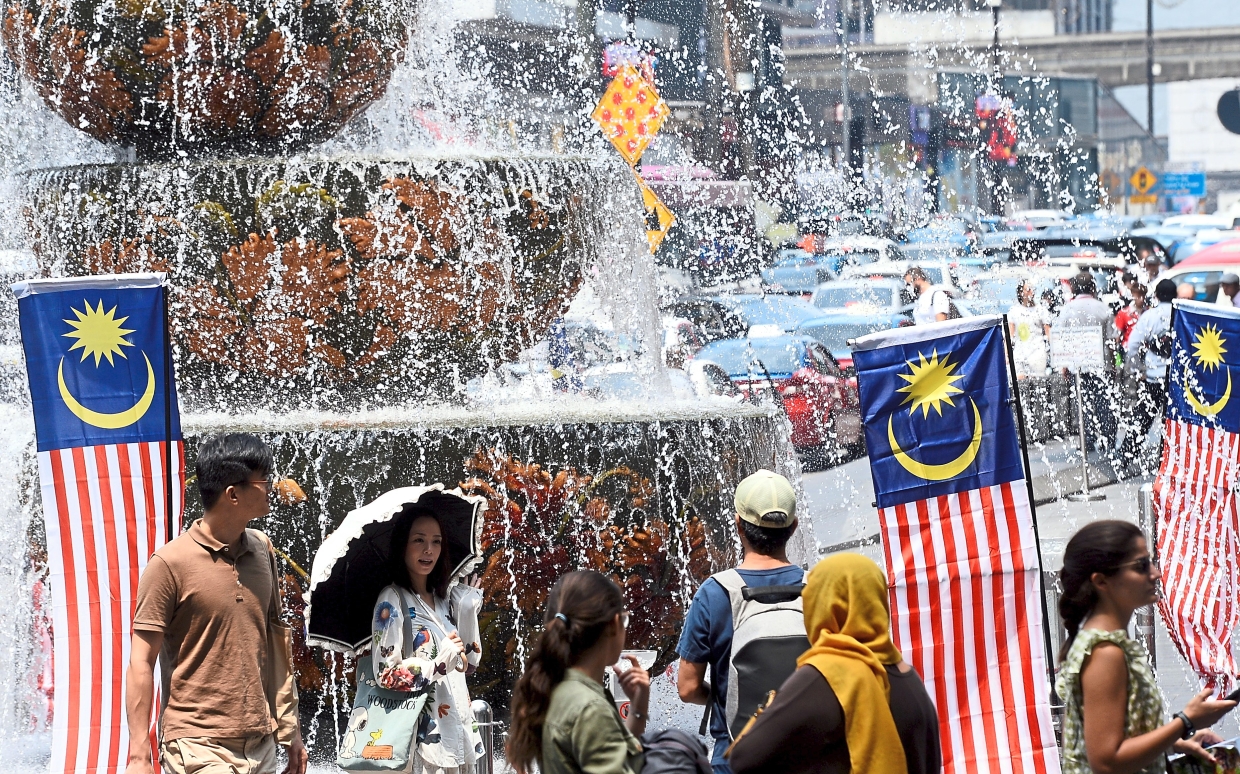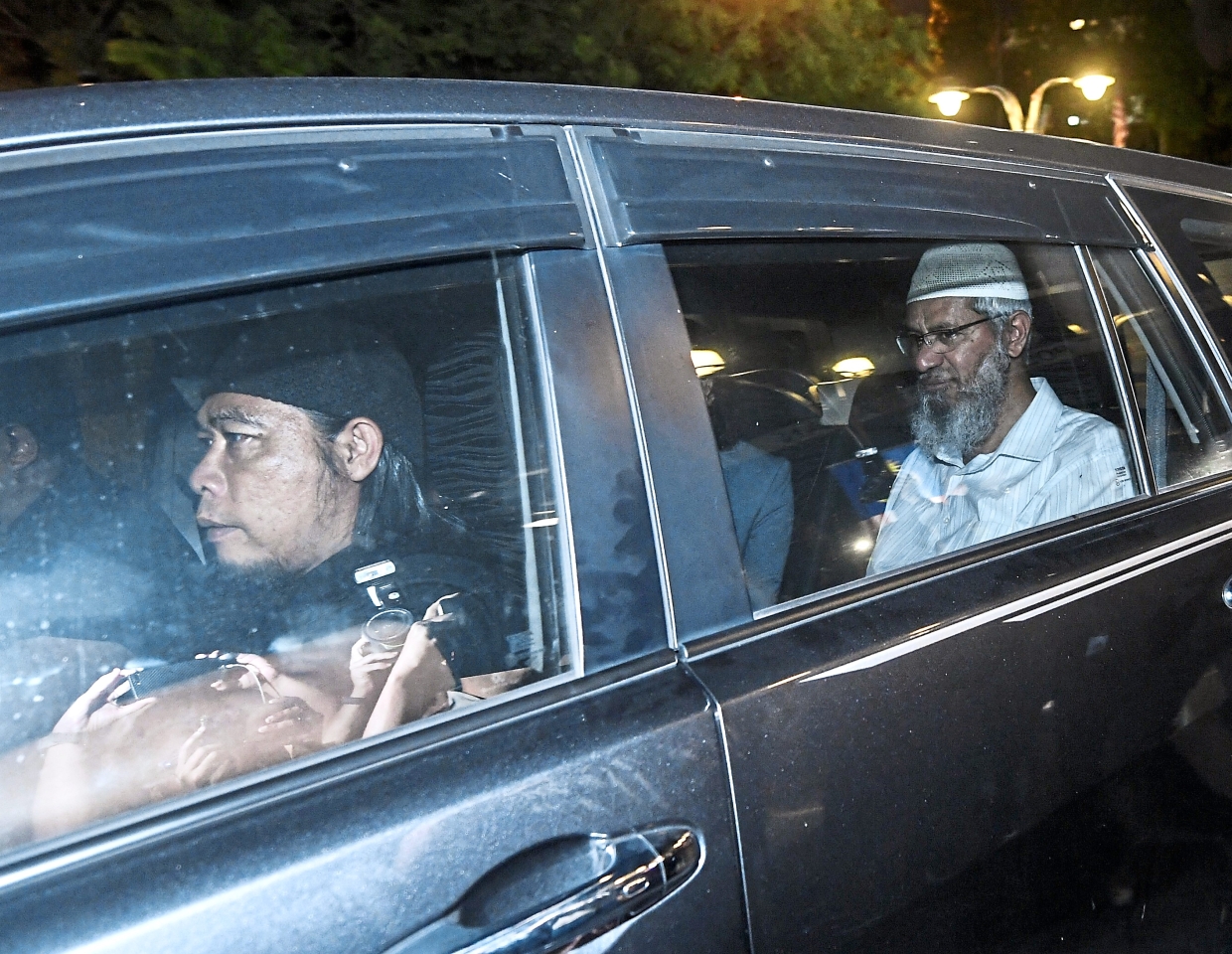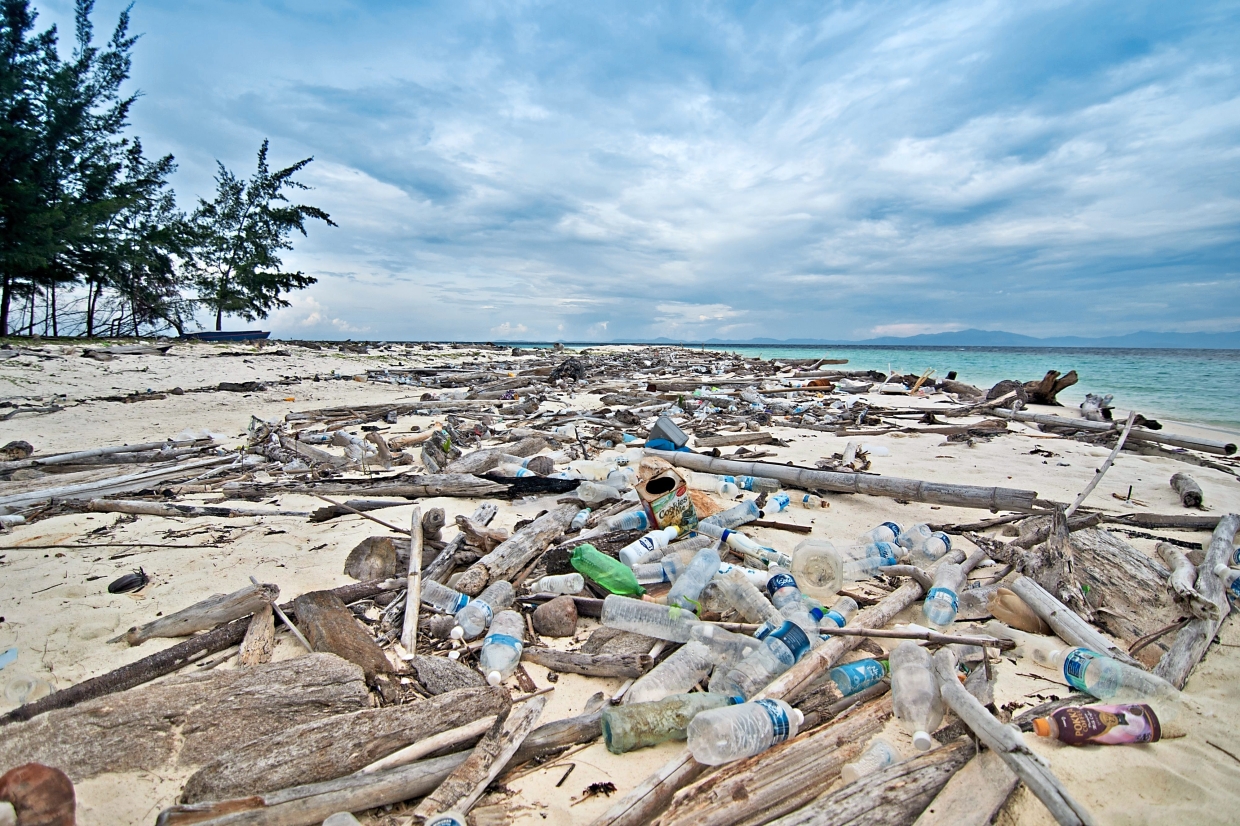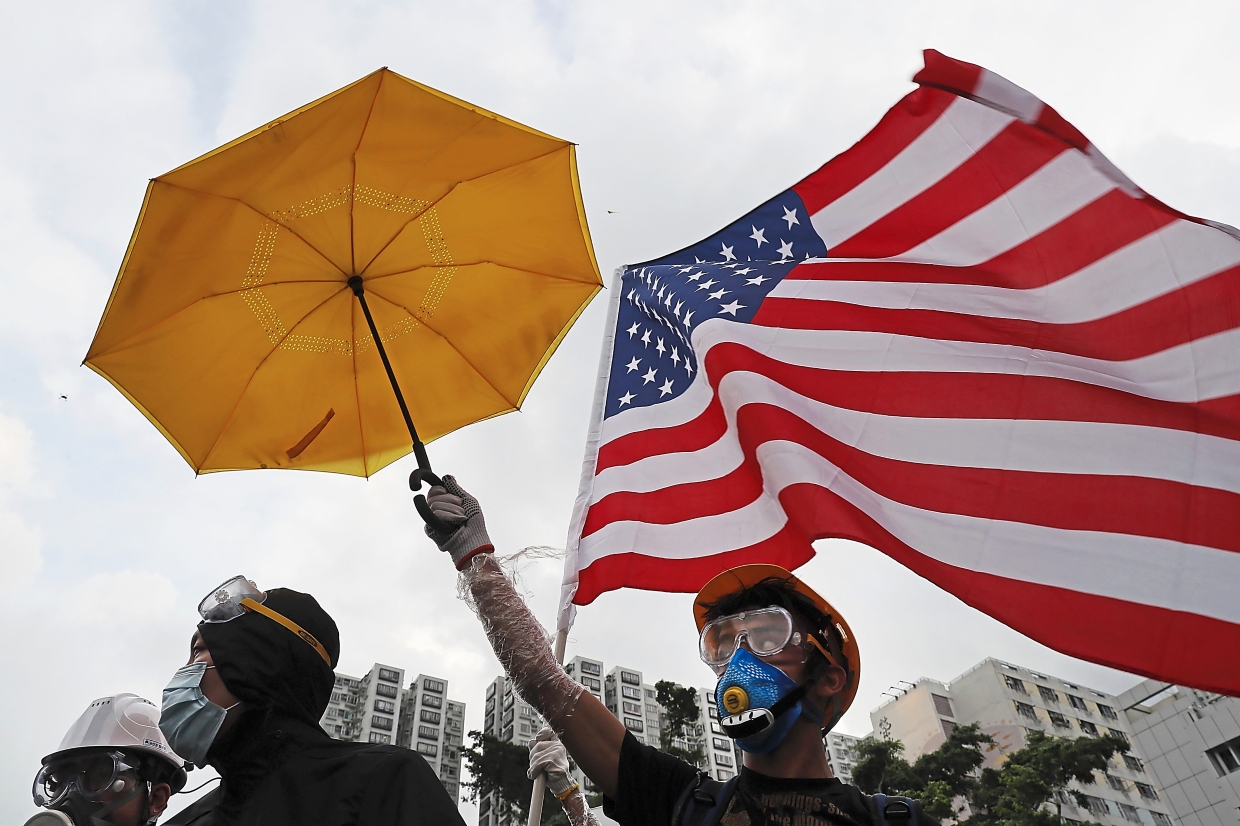
Flag fest: The Jalur Gemilang is flown everywhere in the country during National Day as Malaysians celebrate together as one.
COME Merdeka Day every year, the national flag is automatically raised in my neighbourhood.
They are the everyday people of different races and religions, who see themselves as nothing more than Malaysians. They are proud to be born here. They will even say that they consider themselves fortunate to be Malaysians, in this very blessed nation.
One expatriate, who lives a few doors away, has always hoisted the Jalur Gemilang, joining in the celebrations. There are millions of other Malaysians who do the same all over the country, regardless of them living in the cities, new villages or rubber estates.
But instead, what has been amplified on social media are a few isolated cases of people who have displayed the flag wrongly, or worse, printed it wrongly.
It doesn’t help that there are those who pushed the race and religion agenda, unwittingly or intentionally. In their suspicious minds, they’d like to believe there’s an orchestrated plan to plant these national flags upside down all over the country.
In one case, it was revealed that the national flag was flown wrongly because of the ignorance of a foreign worker. I am sure such blunders have happened in previous national day celebrations, but this time, there is a greater sense of misgiving.
Every day, Malaysians of all races help each other. I’m sure we have come together to help victims of a road accident even, but these kind acts largely go unnoticed. What’s more tragic is, some of us choose to shout about isolated tensions involving Malaysians of all races.
There is an implied narrative at play here, that since the new government came to power, there are non-Malays who have dared question and challenge the Malay institutions. Likewise, there are Chinese who can’t appreciate the beauty of Malay culture and practices, the national language and positive values of Islam.
Even more embarrassing, some can’t even communicate with their fellow Malaysians in Bahasa Malaysia effectively. I always find it strange that migrant workers can speak better. They know they must speak Bahasa Malaysia, at least serviceably, because it’s a matter of survival.
However, I need to point out that many Chinese signed up for Malay Literature at school and university, too, including this writer, and there are many other Chinese who teach the Bahasa Malaysia subject in school.
Basically, Malaysia is a country of 32 million people, yet we can celebrate National Day collectively after six decades, because we have been able to hold the nation together as one.
Ours is a complex, plural society. It can’t compare with countries that are homogenous in their racial composition, or where the minority race is too small, because that only means there really isn’t much political impact. There will always be those with more extreme views within each community, but we shouldn’t be consumed by them because that will only legitimise their purported mainstream leanings. We must always treat them as the minority and highlight the moderate majority instead.
They have become more visible and louder, simply because they can get heard through the social media platform. Many put themselves on Facebook and YouTube, ignorantly assuming they are just talking to their own community, without realising such things can reach a global audience in minutes.
In the process, they find themselves getting arrested, and often, their bravado ends when they find themselves in a lock-up. A three-day remand can do wonders for self-reflection, and most walk out meekly and feel remorseful.
It doesn’t matter whether they express their hate speeches in English, Bahasa Malaysia, Chinese or Tamil, thinking it will only reach their intended audience, because in the digital age, it will reach others. So, these hate mongers must face the consequences of their toxic content.
But there are reasons to be concerned in such free-for-all exchanges, because racism around us and on social media has never been this rife. This is made worse by those who occupy political and religious platforms, who propagate race dominance and supremacy.
Their connotations and down-right dismissal of other races are dangerous, to put it mildly. Such a narrative is divisive, sows the seeds of discontent and drives a bigger wedge between races.
Then there are those who have put the blame entirely on the new government, suggesting that since they came to power, the Malays and Islam are under siege.
None of these assumptions, or agenda, considered the Malays being the most populous race, especially against the shrinking Chinese and Indian communities.
The Malays form and dominate all aspects of society, including Rulers, the official religion, armed forces, police, civil service, and the Bumiputera affirmative action policy. It’s impossible for non-Malays to mess with the status quo, or for that matter, dare challenge for a change.
Besides the emotional response, not many have come out with racist remarks about the looting of billions of ringgit from institutions involving mainly Malays.
In Malaysia, we must choose to highlight the best among us, the moderate majority from all ethnic groups and religious beliefs – and never give credence to the few who peddle exclusive, extreme and hurtful views. We must accept that we can never be the same. None of us can choose our race or birthplace. Like it or not, we were born here, live here and will most likely die here, too. Regardless of us being Malay, Chinese, Indian, Iban or Kadazan, we are stuck with each other.
It might be news to some, but I can’t go back to China. I don’t have relatives there. None that I know of, at least. And contrary to many who think every Chinese speaks Mandarin, I don’t.
And China certainly doesn’t need another mouth to feed. They have more than a billion people, and don’t be duped by the fake news that China is issuing green cards to overseas Chinese.
It has been discredited and dismissed. Yet, it seems to have resurfaced again, and non-credible and unethical news sites are not helping. The mood in the country isn’t downbeat. Most Malaysians are rational people — they are too busy earning a living to be immersed in racist chatter.
None of us can choose the race of our customers, our Grab and taxi drivers, our doctors and nurses, our blood donors and our colleagues.
Politicians are squarely to blame for this, because in their desperation to win votes, the easiest way, unfortunately, is to play the race and religion cards. It’s sad that some of us aren’t thinking straight, and have allowed ourselves to be influenced and exploited.
And not wanting to have their thunder stolen, there are those who use the religion platform to preach hatred. It’s no surprise that none of our holy texts promote pride or prejudice, so it’s surprising that these leaders, claiming to be men of peace and experts in their field, don’t realise the adverse effects of their actions. It hasn’t brought Malaysians together, but divided us further.
The worst of human nature is on full parade now on social media. Where is the good and uplifting that exist in all of us?
Leave the people alone, because most of us can co-exist and respect each other together.
Those of us who live in a more diverse atmosphere, take a much broader view of issues, because we understand and respect race relations better.
Talk of a dominant race is unhealthy and unnecessary. Look at the flipside for a bit – Malays who live in Europe and United States are surely uncomfortable with the hurtful remarks by white supremacists.
Many ignorant Westerners like to equate Islam with terrorism because they choose to validate groups like Islamic State and al-Qaeda – who are the extreme minority – as representing Islam, instead of the majority 1.6 billion Muslims who are peace-loving individuals.
Superfluous assumptions, like casting prejudice on Muslim women who wear the hijab as being Muslim extremists, reflect such shallow minds.
It’s common for Arab Christians, for example, to dress like their Muslim sisters, because of cultural and local conditions and customs.
Likewise, it’s ridiculous to accuse women who wear skirts and don’t cover their heads of enticing men to commit sex crimes.
A plural Malaysia is an asset for Malaysia. The ability of Malaysians to communicate in many languages is a prize to be proud of, and surely, we want to tell the world that we can handle race and religious relations well after six decades.
The independence story is about the major races coming together and working towards it. That is the historical fact, and Tunku Abdul Rahman understood it.
The Malaysia success story today, 62 years on from its birth, is about all races playing their roles by binding this blessed nation together. It’s not about dominance or supremacy at all.
This rhetoric and religious talk won’t help uplift Malaysia. And there couldn’t be a better time for us to need the Malaysia Forward story.
Malaysia is home to all Malaysians, which not only includes the Malays, Chinese and Indians, but also the people of Sabah and Sarawak, and other minorities, too. Without our Malaysians, there is no Malaysia. It’s that simple, and we should never forget that.








